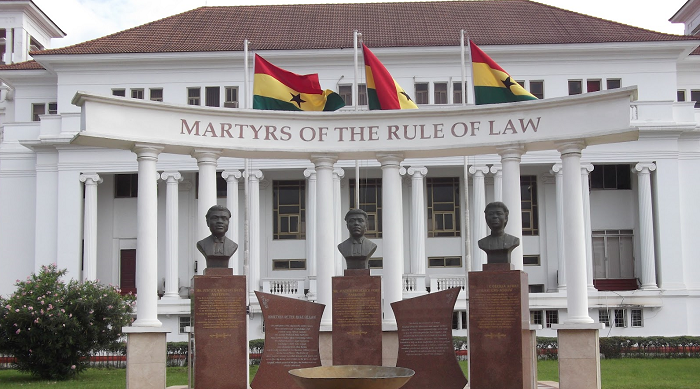
Upholding rule of law
If we will be quiet and ready, we shall find compensation in every disappointment. Henry Thoreau.
Advertisement
Our patience has in recent times been tested. There are many who expressed anxiety over the number of court cases against the Electoral Commission (EC) following the disqualification of some Presidential aspirants in this year’s general election. Many had the feeling that the processes towards the election could be derailed and cause an emergency if the polls are not held on December 7.
Part of the anxiety was informed by the length of time that the Presidential Election Petition took. Moreover in earlier election petitions, it took the full term of a parliament before legitimate complaints about the wrongful declaration of winners for the Ayawaso and Ajumako constituencies were determined by the courts..
This time round, the judiciary has demonstrated a preparedness to defend our democracy and establish the rule of law as fundamental to our constitutional governance. It has tried to assert its authority and mandate to assure us that it is there for the good of us all. Most of the cases have been handled expeditiously. It is noteworthy that the Supreme Court curtailed the individual cases with the ombudsman ruling that all the candidates must be given the opportunity to correct their application forms and resubmit to the Electoral Commission, implying the extension of the period of nominations.
Another landmark decision by the Supreme Court, which has affirmed the rule of law, is the directive to the EC to make provision for the signature of presiding officers at the polling stations together with party agents and the fact that copies of the pink sheet are to be given to the parties. It became apparent at the Presidential Election Petition that, a number of presiding officers did not sign to validate the results, creating opportunities for some of the forms to have been forged. It was thus considered unthinkable that the EC could come out with the constitutional instrument to guide the conduct of the election without a mandatory provision requiring the signature of the presiding officer at the polling station to authenticate the results.
Although in the Presidential Election Petition, the Supreme Court held that the results were valid despite the absence of the signatures, Ghanaians saw the flaw in the ruling when Prof. Kofi Kumado, one of our distinguished Constitutional Lawyers, asked whether a marriage certificate signed by the spouses but without the signature of the registrar could be tendered as a valid marriage certificate.
In relation to the disqualified aspirants, whether the two days offered them to effect the necessary corrections was sufficient or otherwise should not matter. What must gain our attention is the fact, the EC could be directed by the courts in the discharge of its obligations if it exercises its discretion in a manner that does not inspire public trust and confidence or in a manner that could be described as arbitrary. That gives hope. The EC despite its independence does not have the final say in certain matters. The EC must work within certain provisions of the constitution. We must all exercise patience and allow the rule of law and due process to prevail. That is the only way to uproot arbitrariness and impunity from our body politic.
Whether the disqualified aspirants get on the ballot or not, the positioning of which will be conducted today, the fact has been established. In future, the EC cannot disqualify candidate without first offering them the chance to effect corrections that might be necessary. The claim by the EC that it cannot be challenged by any other body or authority has also been shattered. For as long as a citizen is dissatisfied with the conduct of the EC, a claim could be made against it before a court of competent jurisdiction.
From four years through eight months and now a few days to determine matters of election complaints mean that we have come a long way in our attempts to seek redress from the courts whenever we feel cheated by the electoral system. These are developments that must be celebrated. The trend suggests that we are moving forward each time an electoral complaint comes up for adjudication. We must thus laud our justices and applaud the judicial system because it is one area in our public life that has not seen disruption as the case of the Legislature and Executive, except that we have always had a President, whether elected or imposed.
We have to work hard to entrench the rule of law and due process. There is no alternative to a strong democracy than an assertively independent judiciary. The time has come for our justices to take up their responsibilities. They must uphold the rule of law and due process.



